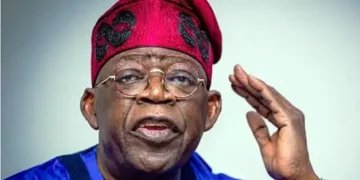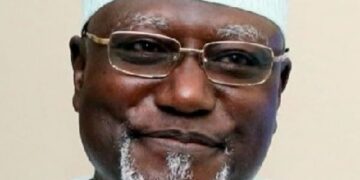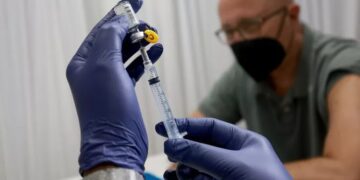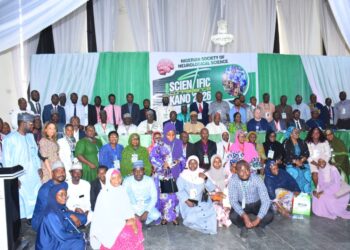Doctors in Kano lament as UN says 83% of Africa remains totally unvaccinated against COVID
A third of the world’s population has yet to receive a single dose of COVID-19 vaccine, including a shocking 83 per cent of all Africans, said the head of the World Health Organization (WHO) on Wednesday.
“This is not acceptable to me, and it should not be acceptable to anyone”, said Tedros Adhanom Ghebreyesus.
“If the world’s rich are enjoying the benefits of high vaccine coverage, why shouldn’t the world’s poor? Are some lives worth more than others?
He announced that to tackle future threats on a par with the virus that has now taken well over six million lives, and infected more than 483 million people, saying WHO was launching a new strategy to scale up genomic surveillance, for deadly pathogens that had “epidemic and pandemic potential”.
He also unveiled the updated Strategic Preparedness, Readiness and Response Plan for COVID-19.
In that regard, medical doctors and health workers in Kano State have expressed worries that COVID-19 vaccination has continued to diminish, as government seems to have abandoned all efforts to actualise the mass vaccination it previously pledged to achieve in the state.
A senior consultant at Aminu Kano Teaching Hospital said “The attention of our government has completely shifted to politics of 2023. They have prioritized power grabbing over the health concerns of the citizens. COVID-19 vaccination issues have been relegated to the background.
The COVID end game?
Meanwhile the chief said “This is our third strategic plan for COVID-19, and it could and should be our last”.
He laid out three possible scenarios for how the pandemic could evolve this year.
The most likely scenario is that the virus continues to evolve, but the severity of disease it causes reduces over time as immunity increases due to vaccination and infection, he stated.
“Periodic spikes in cases and deaths may occur as immunity wanes, which may require periodic boosting for vulnerable populations. In the best-case scenario, we may see less severe variants emerge, and boosters or new formulations of vaccines won’t be necessary.”
But, in the worst-case scenario, a more virulent and highly transmissible variant could emerge, sooner or later, and against this new threat, people’s protection against severe disease and death, from prior vaccination or infection, “will wane rapidly”, Tedros warned.
Addressing this situation would require significantly altering the current vaccines and making sure they get to the people who are most vulnerable to severe disease, he said.
The UN health agency chief laid out five strategic areas governments need to focus on, and invest in:
Surveillance, laboratories, and public health intelligence
Vaccination, public health and social measures, and engaged communities
Clinical care for COVID-19, and resilient health systems
Research and development, and equitable access to tools and supplies
And finally, coordination, as the response transitions from emergency mode to long-term respiratory disease management.
“We have all the tools we need to bring this pandemic under control: we can prevent transmission with masks, distancing, hand hygiene and ventilation; and we can save lives by ensuring everyone has access to tests, treatments and vaccines”.
Equitable vaccination remains the single most powerful tool at the world’s disposal, to save lives, Tedros reminded.
Striving to vaccinate 70% of the population of every country remains essential for bringing the pandemic under control, with priority given to health workers, older people and other at-risk groups.
Over 24 million people will need humanitarian assistance this year in Afghanistan, said Tedros, and they face displacement, drought, food insecurity and malnutrition, COVID-19, and many other health challenges.
Women and girls are especially at risk, he added, from lack of access to health services, and lack of access to education, describing last week’s failure to backtrack on opening middle and high schools for girls as “very troubling”.
For the millions whose lives and basic healthcare is at risk due to the raging conflict in northern Ethiopia, Tedros, whose family roots are in Tigray, welcomed last week’s declaration of a humanitarian truce in the region – between Tigrayan leaders and Government forces, in order to allow in vital aid – saying he hoped it would lead to the rapid restoration of public services, including electricity, telecommunications, banking and healthcare.
Share your views on the story Doctors in Kano lament as UN says 83% of Africa remains totally unvaccinated against COVID with OnlineNews in the comments section






























